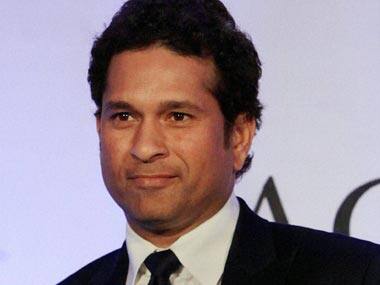For the people of Bharat, Sachin Tendulkar was a ‘Ratna’ long before the Bharat Sarkar decided to bestow on him the official title a day after his retirement from cricket. For a beleaguered Government, on its last legs, it was great chance (not to be missed) to show some connect with the wishes of the people of India. “Yes we agree – he is a jewel in India’s crown” seemed to be the message behind the Government unusually decisive move to honour the great batsman. But is an honour given out by the government of the day, something that is just another symbol of the lingering power of patronage of the Indian state, really worth having? After all, how can an award that is ultimately adjudicated by a handful of ruling politicians and sundry bureaucrats in the Home Ministry and the Prime Minister’s officer have any credibility at all? It is tempting to say — and many people say it – that India’s civilian honours (from Padma Shri to Bharat Ratna) have lost some prestige in recent times as partisan Governments have rewarded their favoured academics, bureaucrats, doctors, artists and dare I say journalists alone. But the fact is that civilian honours have always been a source of patronage. It’s just that politics was not so partisan (during the five decades of largely Congress Party rule until the mid 1990s). It was just one-sided. So were the honours. Unsurprisngly, Nehru, Indira and Rajiv all won Bharat Ratnas without contention, but Vajpayee cannot. [caption id=“attachment_1236295” align=“alignleft” width=“380”]  Sachin Tendulkar may deserve the award but have civilian honours been misused by governments? PTI[/caption] This is not to say that only undeserving people have won civilian honours. To the contrary, a majority is likely to have been quite deserving of the honour. But the deserving are done a disservice by receiving it from the ruling Government, which consciously uses the Padma awards (and Bharat Ratna) as a source of patronage, even co-option. From the government’s point of view, patronage doesn’t get cheaper (literally) than civilian honours. None of the Padma awards comes with a lal-batti car, or a Lutyens bungalow or prime office space in the heart of Delhi, those usual perquisites of any serious Government patronage. It’s as simple as signing of a few names on a piece of paper and then handing out elegantly designed scrolls at a lavish ceremony in Rashtrapati Bhavan. But there are plenty of ‘eminent’ Indians who would settle for that. Of course, recognition across professions is important. It is motivating and inspiring. But must it be done by the state? For academics, doctors, artists, even journalists, the benchmark honours should come from their peers, not the Government. It’s a different matter that India has not developed enough “professional” honours and that the few that exist are highly compromised by the very same afflictions of corruption and patronage. But that isn’t reason enough to support state-instituted honours. Several countries give out civilian honours every year. In almost every case, including that of the UK (from where we inherited our own system), there have been, from time to time, accusations of patronage and corruption in the doling out of honours. Let’s face it. When governments have the power of easy patronage (which imposes no cost on the taxpayer), why will they not use it? It is unlikely that any India government will abolish the Padma Awards (plus Bharat Ratna). But if the awards are to have even an iota of credibility in these politically charged times, the system by which they are adjudicated must change. If the honour is on behalf of India, then why not let a Parliamentary Committee cutting across party lines adjudicate the process? Why not set up a committee of eminent citizens (to be rotated every few years) to short list candidates? In short, there are better ways to dole out civilian honours than the system we use at present. Still, the first best option would be to abolish civilian honours and thus dent the insidious patronage system of the Indian state.
The first best option would be to abolish civilian honours and thus dent the insidious patronage system of the Indian state.
Advertisement
End of Article


)

)
)
)
)
)
)
)
)



